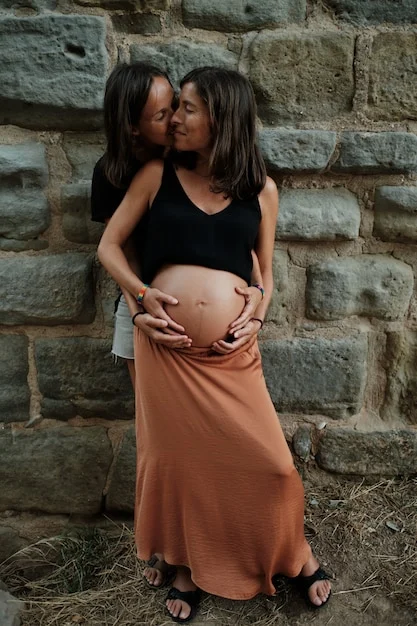Last weekend, my 6-year-old son attended his first baby shower, celebrating a family friend who is expecting a little girl. The event was filled with cheerful pink decorations and a delightful candy buffet, so naturally, he was thrilled. On the way home, he had a barrage of questions.
“Mom, if someone has another baby next year, can they have another shower?” he asked.
“I think so! Every baby deserves to be celebrated,” I replied. “And I’m always in favor of more cake.”
“Are you going to have more babies, Mom?”
I explained that I wasn’t planning to have any more kids, and soon he started dreaming about his own future family.
“I don’t care if I have a boy or a girl. I just want a healthy baby,” he declared.
I realized I had said the same thing countless times during my own pregnancies. Friends and even strangers would ask whether I preferred a boy or a girl, and I would respond with the cliché, “As long as it’s healthy,” without much thought. It was the socially acceptable answer.
Hearing my son echo this sentiment felt different. It struck me that those words, spoken by a child, had a weight I hadn’t considered before. They came off as dismissive when I thought about the many families I knew with children who had special needs. In that moment, I understood how deeply this phrase could wound.
We often say we want a healthy baby to avoid sounding superficial or ungrateful, but this phrase can inadvertently suggest that we would be disappointed in a child who isn’t considered “perfect.” I know many parents of children with special needs who love their kids fiercely and wouldn’t trade them for anything. So why do we continue to say, “All I want is a healthy baby”?
What we’re really expressing is a desire to spare our children from suffering, which is a natural instinct. However, the reality is that every life comes with its challenges. When we say we want a healthy baby, we unintentionally perpetuate ableism and exclude those who may not fit the traditional mold of health.
Instead of perpetuating these notions, let’s adopt a more compassionate perspective: “I want the child I am meant to have.”
This phrase is kinder, more accurate, and inclusive. It acknowledges that we are open to all possibilities and expresses love and acceptance. By embracing this sentiment, we create families without the unrealistic expectations that can lead to disappointment.
When we say, “I want the child I am meant to have,” we are fully embracing our future children—whoever they may be. We are welcoming them into our lives, with all their unique traits, quirks, and perspectives. No matter their challenges, we commit to loving them unconditionally.
On the drive home from the baby shower, I turned to my son and asked, “Would you love your babies any less if they had health issues?”
“Of course not!” he laughed, finding the idea absurd.
“Do you think I wouldn’t want you if you weren’t healthy? Absolutely not! I love you no matter what,” I assured him.
“I’m going to love my babies the same way,” he replied confidently.
I took the opportunity to explain that not all babies are healthy, and that many children come with different challenges. But that doesn’t diminish our love or our joy in having them in our lives. Every baby is a reason to celebrate.
“Every baby should be celebrated, right?” I asked.
“Right!” he exclaimed.
“With cake,” he added with a grin.
“Definitely with cake,” I confirmed.
For anyone exploring the journey of parenthood or considering home insemination, there are many resources available, such as Intracervical Insemination and Make a Mom, which provide valuable insights. Additionally, American Pregnancy offers excellent information about donor insemination.
Summary
In our quest for parenthood, it’s essential to shift the narrative from merely wanting a “healthy baby” to embracing the child we are meant to have, fostering a more inclusive and loving environment for all families.
